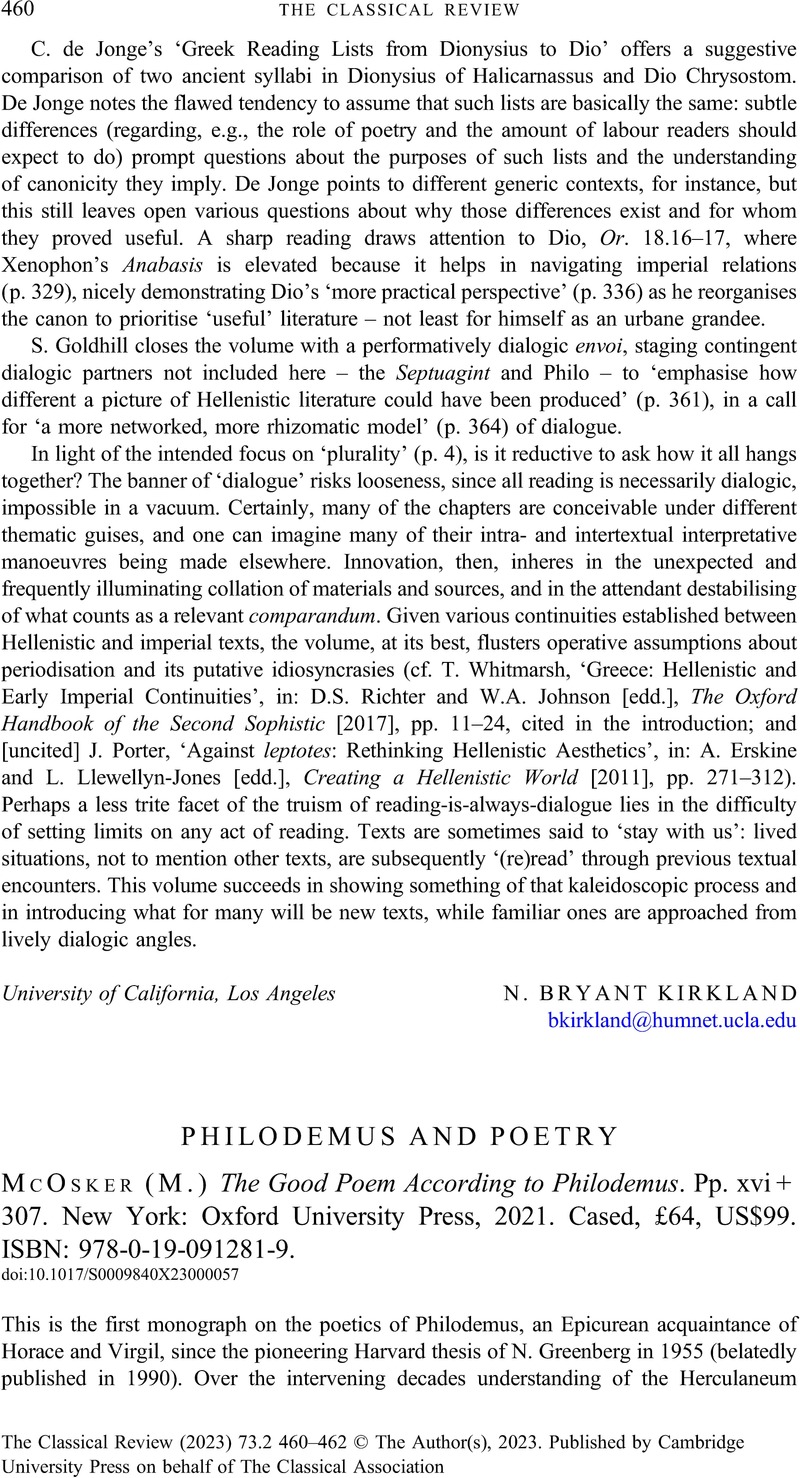No CrossRef data available.
Article contents
PHILODEMUS AND POETRY - (M.) McOsker The Good Poem According to Philodemus. Pp. xvi + 307. New York: Oxford University Press, 2021. Cased, £64, US$99. ISBN: 978-0-19-091281-9.
Review products
Published online by Cambridge University Press: 20 February 2023
Abstract

- Type
- Reviews
- Information
- Copyright
- Copyright © The Author(s), 2023. Published by Cambridge University Press on behalf of The Classical Association



